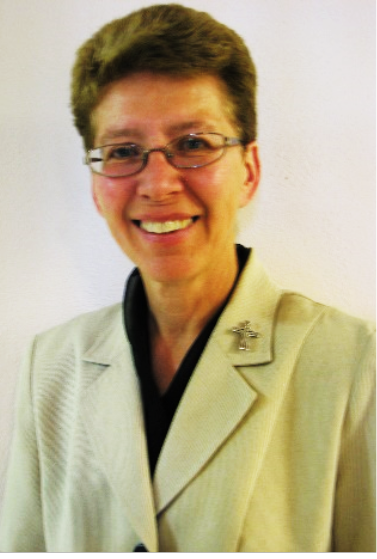- By Sr. Mary Valerie Schneider
As we begin Lent and look for ways to improve, the first place to look is with our family. George Bernard Shaw wrote, “A happy family is but an earlier heaven.” How true! Is there some tension in the family? Is there an elephant in the living room that no
- By Sr. Mary Valerie Schneider
St. Francis de Sales wrote: “Lent is the autumn of the spiritual life when we pick the fruit and gather it for the whole year.” Really? Autumn? Isn’t Lent the springtime of the Church Year? (This year’s early Ash Wednesday even makes Lent more like mid-winter.) Well, let’s humor St.
- By Sr. Mary Valerie Schneider
Although my eyes are nondescript, my driver’s license claims they’re “blue.” Actually the color could be a blob of green, brown, and blue paint. The license is just a guess. Other parts of me are quite descriptive. My fingers are short and stolid—nothing to look at but great for playing
- By Sr. Mary Valerie Schneider
Some words or phrases are just plain fun to say. They delight the mouth and please the ear. At times the consonants and vowels shape the facial muscles into a friendly mien. For a pleasant countenance, try these words: delightful, supreme, ebony, alleluia. Here are some fun words to say
- By Sr. Mary Valerie Schneider
Christ is the union of all created reality in the love of God. Everything in the universe streams toward Christ to find completion. One day all creation will become the Body of Christ, God’s Body. I imagine that on that day the sounds of laughter will reverberate throughout the universe.
- By Sr. Mary Valerie Schneider
In the sixth century Irish missionaries used Advent as a time to emphasize the last judgment. Thus Advent became a penitential season with fasting, prayer, and purple vestments—in other words, another Lent. In Rome in that same century, under Pope Gregory the Great, Advent focused on the Incarnation during the
- By Sr. Mary Valerie Schneider
The Church Year developed over several centuries, and the Church calendar continues to change as new saints are added. In the first century the Church calendar consisted almost exclusively of Sundays and one whopping Sunday called Easter. Eventually Lent was added to prepare for Easter. It was then logical to
- By Sr. Mary Valerie Schneider
Advent is often referred to as the beginning of the Church Year. The reason stems from the fact that the Advent readings are placed first in the lectionary. However, putting the Advent readings on page one was simply an arbitrary decision made centuries ago. Advent could also be called the
- By Sr. Mary Valerie Schneider
During Advent the Church celebrates three comings of Christ: the historical coming of Jesus Christ born 2000 years ago (Memory), the Second Coming (Majesty), and his coming into our lives now (Mystery). Manger scenes, Christmas trees, pageants, and Advent calendars remind us of His first coming. The Second Coming stays
- By Sr. Mary Valerie Schneider
Today’s readings speak of a feast of rich food and choice wines (Isaiah 25) and people eating their fill (Mt. 15). I love the images of food—the choice foods in Isaiah, but even loaves and fish can taste mighty good. The readings suggest that the material world has a spiritual




